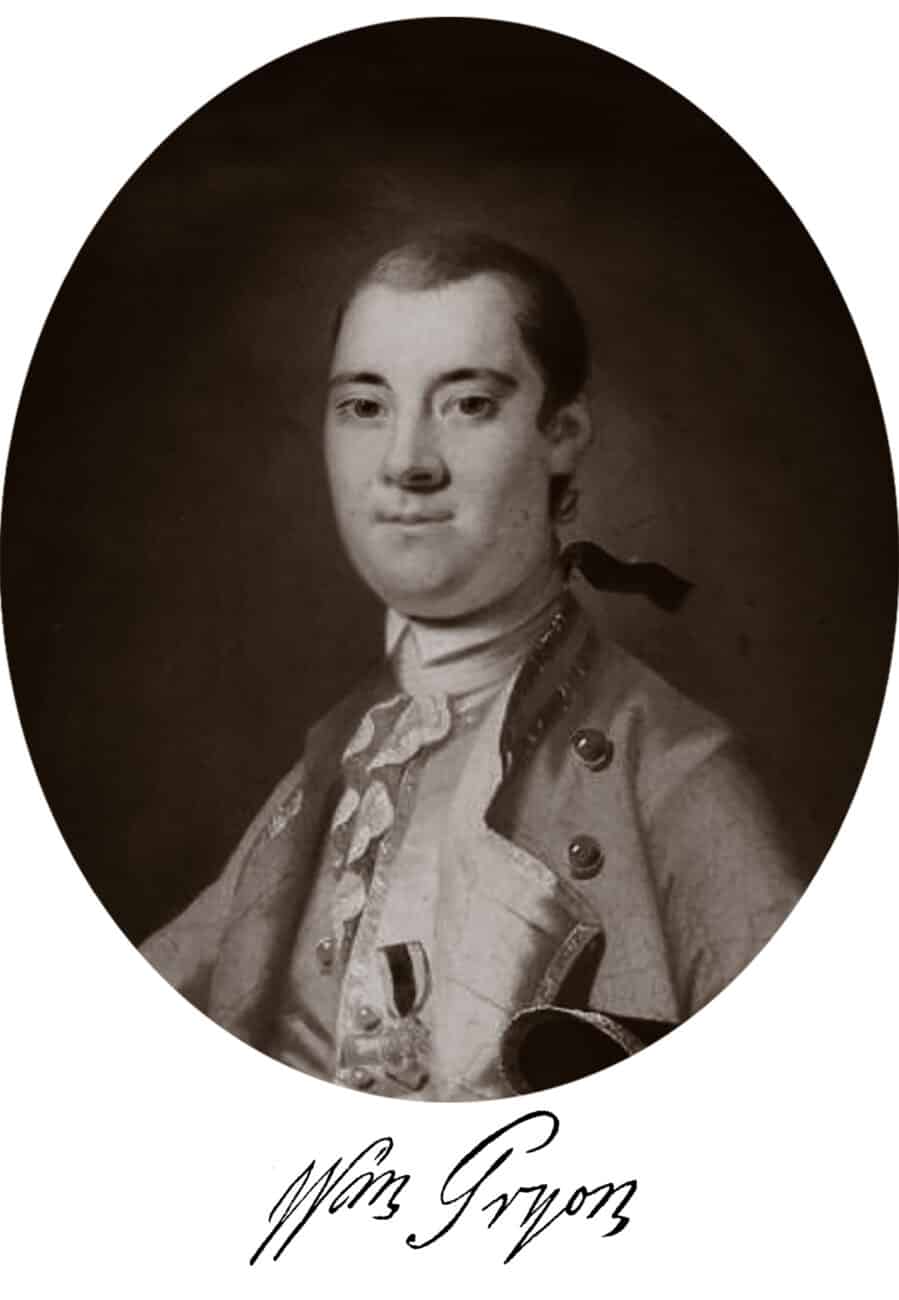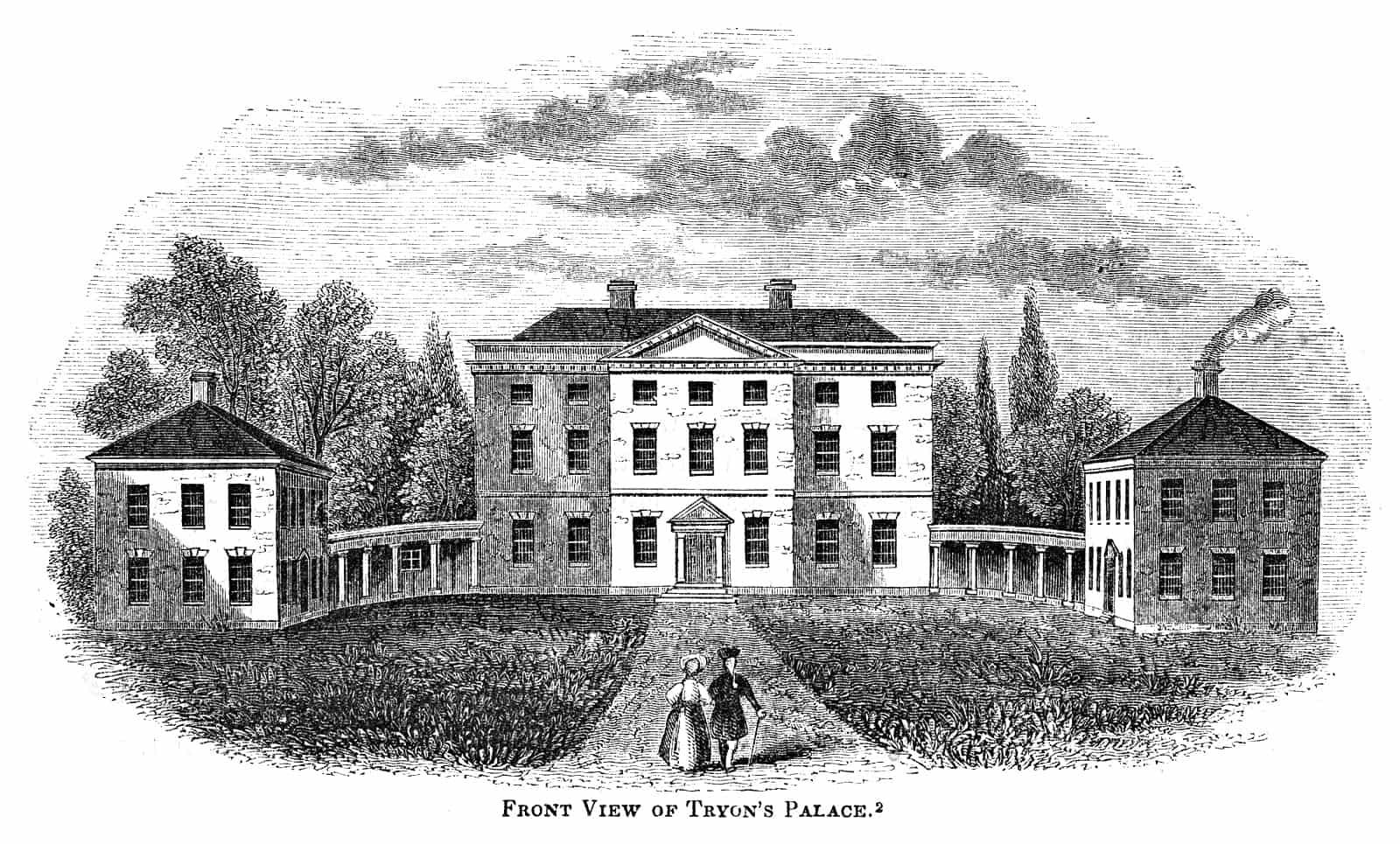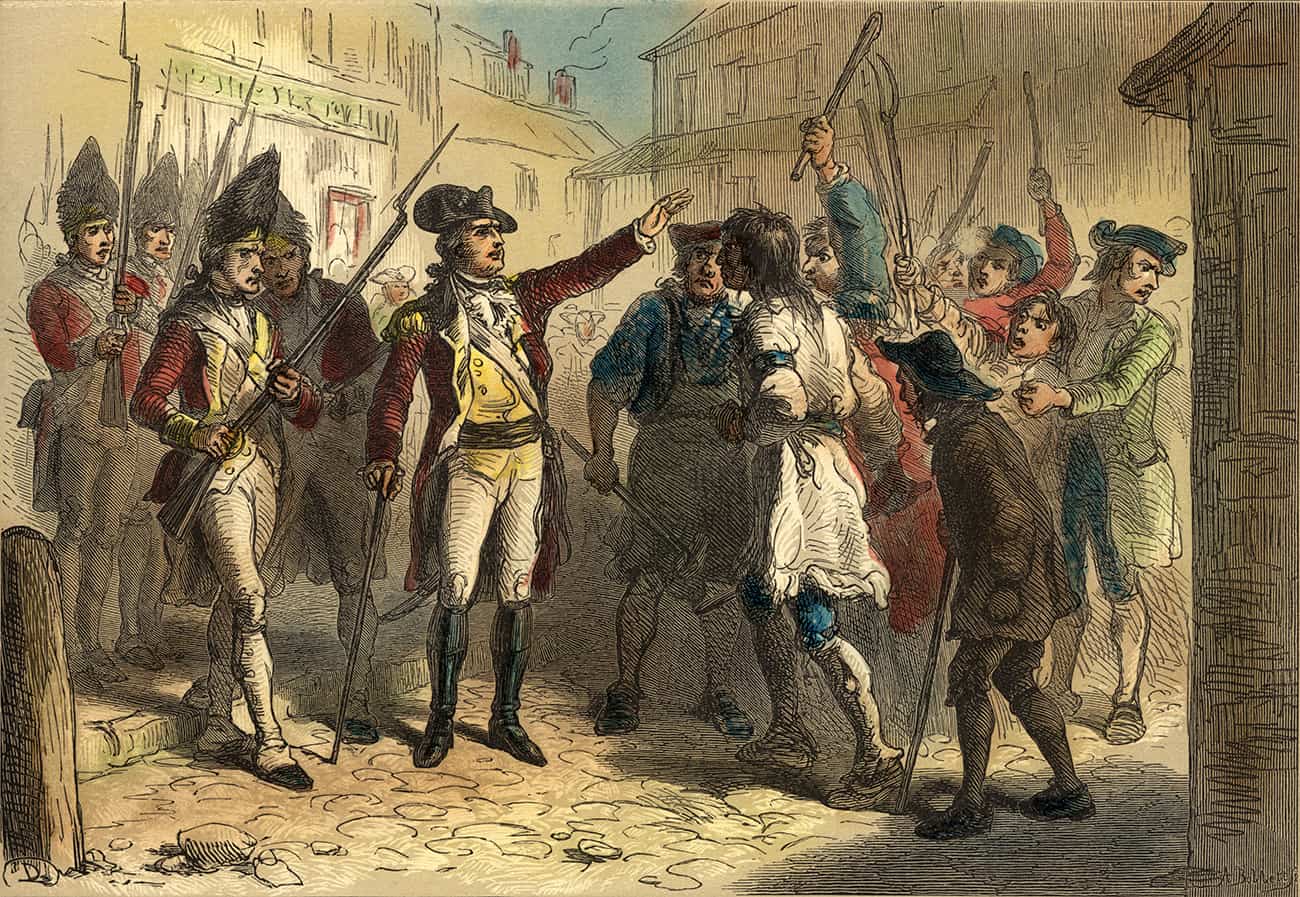
Who was General William Tryon?

Connecticut history portrays William Tryon as a ruthless bully who raided and destroyed seven towns. Vermonters remember him as the man who called for the heads of Ethan Allen and the Green Mountain Boys. He is known as “Billy the Butcher” in North Carolina for the part he played in the Battle of Alamance. Through the years, he has become a symbol of British aggression toward citizens of Revolutionary War America. He is a man we love to hate.

However, Tryon is known to have been one of the best Royal Governors in the colonies and was popular and respected in both North Carolina and New York until the Revolutionary War. Although he was vehemently against British taxes imposed on Americans, he reluctantly enforced collection believing it was his duty to support the crown.
At the beginning of the war, Tryon’s knowledge of the American people convinced him that the conflict could be quickly ended if the British eliminated civilian rebel leaders. Less blood would be spilled on the battlefield if these people were targeted and removed before the rebellion became widespread. As the war continued Tryon began to believe that terrorist military strategy was the only way Britain could defeat the Americans. He developed a theory of “desolation warfare” aimed at American rebel citizens. He was given the chance to practice this theory when General Clinton gave him command of the raids on the Connecticut coast.
The raids in Connecticut were found distasteful by many British military commanders. In later years, Tryon was said to be penitential about his operations on the Connecticut coast.
The Two Sides of William Tryon
William Tryon was a devout Anglican and believed that the Church of England should be established in all parts of the British Empire.
He was known to be polite, tactful, honest and loyal. It was said that he was intelligent and able, with a sensitive mind. He was polished in both diplomatic and social graces.
He was said to be a fine politician – one of the Colonies’ most successful Royal Governors.
His accomplishments in North Carolina won him a favorable reputation. He helped implement the North Carolina Postal Service, established the Anglican Church in North Carolina, and made improvements in education, economics and the military.
William Tryon was tolerant of those who did not accept the Anglican religion. He helped establish laws in favor of dissenting religions.
He was criticized for being “overzealous in protecting his personal dignity” and appeared too vain for the tastes of many. He admitted to “a bilious Habit of Body” which caused him to lose his temper.
Tryon was not successful in soldiering. He did not have the talent of tactical or strategic thinking. He was criticized for being rash and impetuous.
His reputation diminished with the Battle of Alamance. Many Americans used the incident to accuse him of crimes against the people of North Carolina.

Significant Dates in the Life of William Tryon
William Tryon, the son of an aristocratic family, is born in Surrey, England.
His father purchases a commission for him as Lieutenant in the 1st Regiment of Foot Guard.
Through an influential relative of Margaret Wake, he is appointed Governor of North Carolina.
With the consent of the North Carolina Assembly, he builds Tryon Palace in New Bern, North Carolina.
He leads troops against angry North Carolina farmers at the Battle of Alamance. Six of the rebels are hung. Tryon becomes Governor of New York.
Fire destroys the New York Governor’s Mansion along with all of the Tryon family’s possessions.
He is forced to take refuge from American radicals on a ship in New York harbor.
Tryon emerges as an advocate of predatory warfare against rebel leaders.
1779
He leads the raids on Connecticut coastal towns, including Norwalk.
1780
Tryon retires from post as New York Governor and returns to England.
1787
He dies at age 58 in London.
A fire destroys Tryon Palace in North Carolina. It is reconstructed c. 1950.



